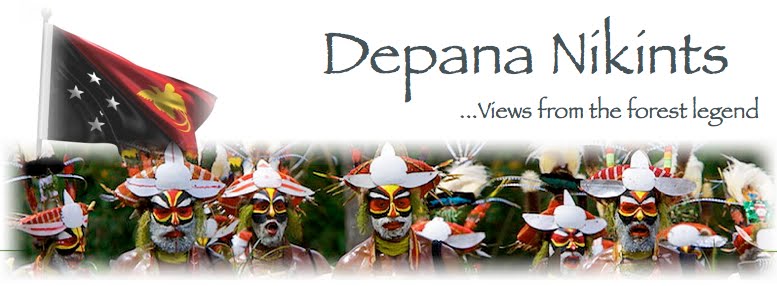The Corporate Perspective:
“Development” is the catchphrase over used by promoters and advocates of Customary Land Reform in Papua New Guinea. The government and major donor agencies see Customary Land Tenure System to be a major default for development and economic progress. They see that access to Customary Lands is an important factor in economic development in Pacific island countries and a major consideration for investors. Financial institutions are also unlikely to lend money on custom lands; therefore it locks the economic potential and opportunity for these lands to be developed.
Our Melanesian Perspective:
We see development in terms of physical, spiritual and mental empowerment of people and our concern is the development of the whole person as we want people to grow. Too much control prevents people from advancing and therefore we want to provide space for people to discover themselves, improvise, and develop ideas that suit their needs and situation and the environment they live in. An empowered people or community has the holistic potential to cause them to progress by making informed decisions and be the master of their own destiny. We hope to see our people rise to become truly self reliant. Personal transformation is what our people need and we believe it is more sustainable than material development.
These cannot be valued in monetary and the western economic standards. These are the essence of life to us Melanesians and we highly esteem these values. Why commercializing our only link to our values. When you see the dollar, it blinds you to see the Melanesian view of land.
We are not stupid to understand that there are major problems faced by the developed world which they can not solve with all the money they have. They boast to have low poverty levels, yet, there are millions on the streets who are home less and have nothing to eat. This is the situation with the United States today with the struggling US$. Because of our land tenure situation, we do not see these problems. For example, families without any form of income generation or formal employment who earn less than a US$1 dollar a day still have plenty of organic food to eat and share with others, a simple hut to sleep in, with access of water from streams, creeks and rivers to cook and wash, and there is laughter and dancing and high moral standards.
We are not stupid to know that, the developed countries have no intent to help us get to the same standards as them. They are here because of our rich threshold of natural resources. Nevertheless, even if they have some good intentions, we fully understand that we are a different group of people with different beliefs, cultures and values. Therefore what the white men proposes is from his context, believe, culture and value. We can never be like the whites and do not think it is wise to copy or live a life of pretence and self denial. The Africans never got it right and we can never dream to get it right without the people maintaining control of the land. It will be a tragedy and chaotic for Melanesian to be landless and forced to live in an individualistic society without any spiritual and cultural connections. Once our land is gone, we’ll be defeated foreigners in our own land and also present to our dear children a future of alcoholics, drug addicts and prostitutes. It is our greatest fear to end up like Africa.
Thus, there is no better conclusion than this:
We see the darkness of neon lights. We see thedespair and loneliness in the urban cities. We see
the alienation of (the people) that is the result of the
present machine orientated economy. We see true
social security and (the people’s) happiness being
diminished in the name of economic progress. We
caution therefore that large-scale industries should
be pursued only after very careful and thorough
consideration of the likely consequences upon the
social and spiritual fabric of our people…There is
overwhelming evidence to suggest that a significant
number of people who live by the fruits of multi-million
dollar multi-national corporations live in misery,
loneliness and spiritual poverty. We believe that
since we are a rural people, our strength should
be essentially in the land and the use of our innate
artistic talents. (Papua New Guinea Constitutional
Planning Committee, 1975



No comments:
Post a Comment